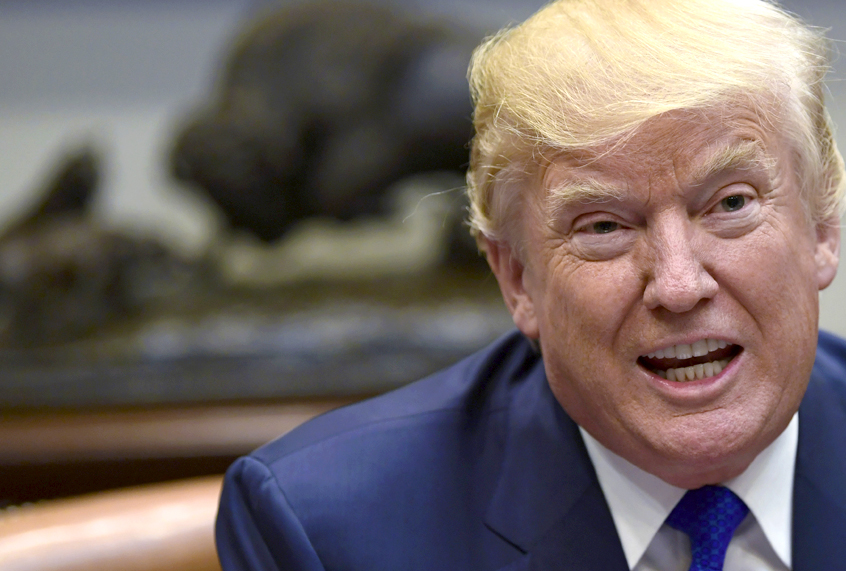As President Donald Trump continues to stumble his way through his first year in office, several high-profile figures are raising concerns about the president’s mental health.
Tony Schwartz, journalist and author of Trump’s “The Art of the Deal,” said he had knowledge of two phone calls from inside the White House from officials expressing serious concern about the president’s mental fitness.
“I know that two different people from the White House — or at least saying they were from the White House and that turned out to be a White House number — have called somebody I know in the last several weeks to say ‘we are deeply concerned about his mental health,'” Schwartz told MSNBC’s Ari Melber on Wednesday night.
When Melber asked him how he could possibly know that, Schwartz reiterated that he knows the person who received the calls, and the person has “great integrity.”
Breaking: @tonyschwartz tells @AriMelber he knows “two different people from the White House” have called to express concerns about Trump’s mental health pic.twitter.com/PyQ6gXWAq8
— TheBeat w/Ari Melber (@TheBeatWithAri) November 29, 2017
While that’s certainly the first public indication that White House staffers have expressed concern over Trump’s mental health, it’s by no means a new topic. Take Joe Scarborough for instance, who has raised questions about Trump’s mental stability for at least a few months now. On Thursday’s “Morning Joe,” the anchor called on Trump’s Cabinet to invoke the 25th Amendment, because he is “mentally unfit,” which would remove him from office. “People close to him say he is mentally unfit, people close to him during the campaign told me he had early stages of dementia,” Scarborough said. “Now listen, you can get mad at me. When are we supposed to say this? After the first nuclear missile goes? Is that when it’s proper to bring this up in polite society? Tell me.”
“The question is…if this is not what the 25th Amendment was drafted for.” — Joe #MorningJoe pic.twitter.com/JXeED4bqGg — Morning Joe (@Morning_Joe) November 30, 2017
Recently, psychiatrist Dr. Bandy Lee told Salon’s executive editor Andrew O’Hehir, “We believe that Mr. Trump, in the office of the presidency, poses a danger to the public, and in fact the international community.”
“Assessing dangerousness is actually more about the situation and not just about the person, whereas a diagnosis would be about the person and stays with the individual,” Lee continued. “So, a certain individual may be dangerous in a certain position of power and not dangerous in another situation.”
Salon’s Chauncey DeVega spoke with Dr. John Gartner, a former assistant professor of psychiatry at the Johns Hopkins University Medical School, who told him that the president “is a narcissist, paranoid and demonizes anyone who opposes him.”
“Trump has an antisocial personality and exhibits signs of sociopathy. Sadism is another part of this dynamic. These are people who truly get pleasure from harming and hurting and degrading other people,” Gartner said.
Some psychiatrists have expressed concern over passing judgment on Trump’s mental fitness because of the “Goldwater Rule,” which states that it’s unethical to provide a professional opinion on a person absent an in-person examination, but Gartner said he didn’t agree.
“They are ridiculous cowards,” he said of other psychiatrists who have remained hesitant. “We are afraid to speak up because of the Goldwater Rule? Are you kidding me?”
“They are just trying to stay out of the way of anyone powerful who might get angry at them and interfere with them making money. It is that simple. The Goldwater Rule is not an example of psychiatric ethics,” he added.
Gartner continued, “This is the greatest psychiatric emergency in the history of the United States and maybe in the history of the world, but we can do nothing about it. Because Trump is the president, we can’t call the police and have him evaluated.”


